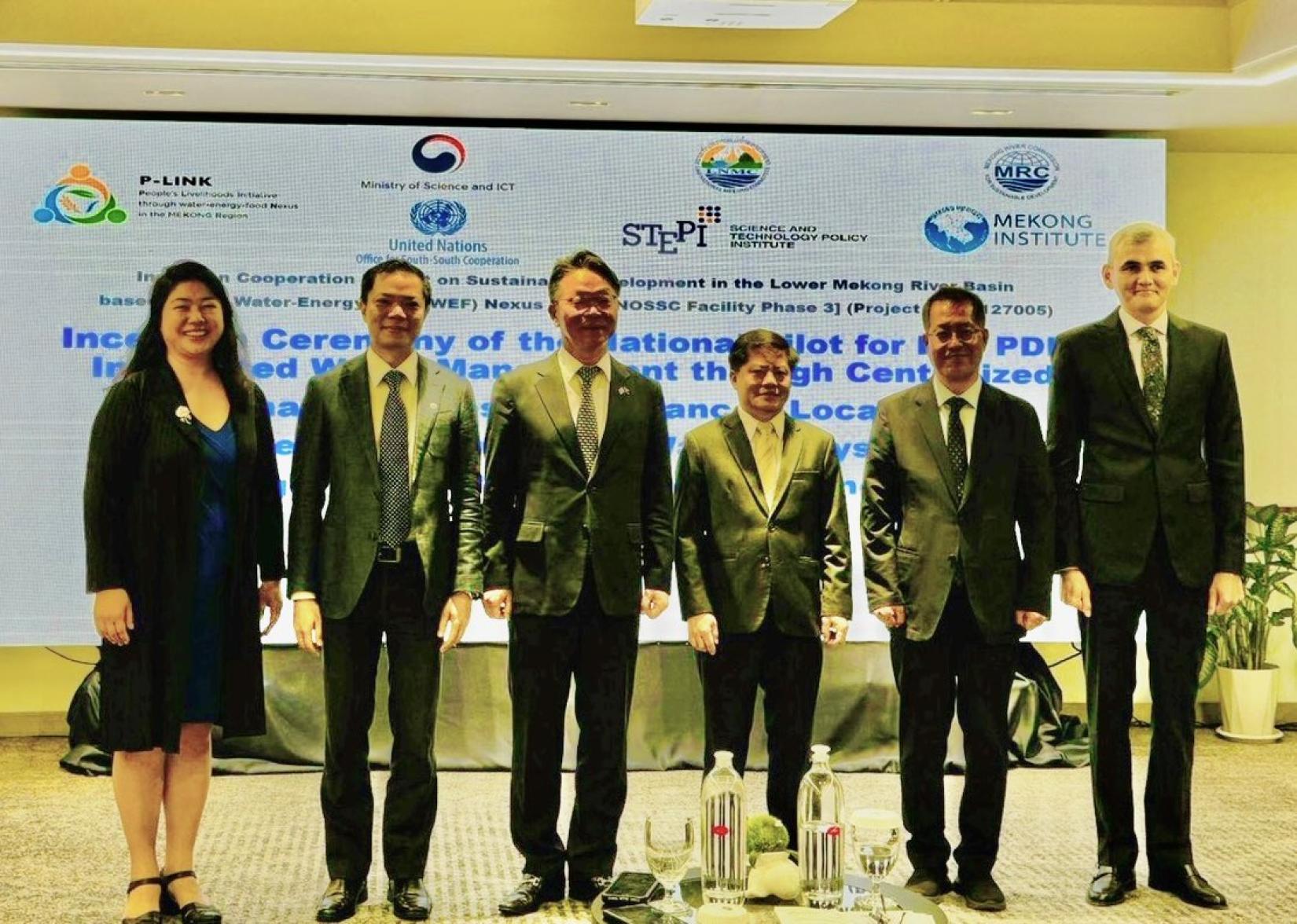Remarks at Triangular Cooperation Project on the Water-Energy-Food Nexus in the Lower Mekong River Basin: Lao PDR National Pilot Launch Event
Remarks by Mr. Bakhodir Burkhanov, UN Resident Coordinator

Mr Phonepaseuth Phouliphanh, Secretary-General of the Lao National Mekong Committee Secretariat,
Dr Anoulak Kittikhoun, CEO of the Mekong River Commission Secretariat,
Excellency, Ambassador Young Soo Jung, Republic of Korea,
Dr Woo Yang Seung, Acting President, Science and Technology Policy Institute (STEPI) of the Republic of Korea,
Ms Xiaojun Grace Wang, Trust Fund Director at the UN Office for South-South Cooperation,
Colleagues, ladies and gentlemen,
It is my pleasure to join you here today for the launch of the national pilot under the Triangular Cooperation Project on Sustainable Development in the Lower Mekong River Basin.
I would like to focus on three points in my brief remarks today.
First, I wish to highlight the project’s integrated approach of Water-Energy-Food Nexus, which touches upon three critical priorities for sustainable development in Lao PDR. Specifically:
- Water, from the Mekong and its tributaries, is a lifeline of the entire region – 50 million people in the Lower Mekong, alone, depend on the river for their livelihoods;
- Energy, is a cornerstone of Laos’ ambition of becoming the “Battery of South-East Asia”, without losing sight of the important considerations of energy access and affordability;
- And sustainable and resilient food systems are also critical to national development, with over 50% of the workforce engaged in agriculture, yet areas of the country are still grappling with food insecurity.
Taking an integrated approach can maximise synergies, reduce trade-offs, and ensure that none of these intertwined objectives is forgotten.
Through an integrated approach, we can ensure that progress in one area – for example, on energy – does not affect water or food security outcomes elsewhere, and that ultimately, no one is left behind.
Second, this project is an example of what South-South and triangular cooperation can accomplish.
Through sharing of experience, best practices, knowledge and technology transfer, developing countries can rapidly and cost-effectively apply proven solutions where they are needed the most. Transfer of technology envisaged under this initiative is key to helping least developed countries like Lao PDR to accelerate their progress towards the Sustainable Development Goals.
And third and last, the national pilot we are launching today – focusing on integrated water management, enhanced local flood forecasting and early warning systems – aligns well with Lao PDR’s efforts under the “Early Warnings for All” Initiative.
I see a clear opportunity for us to leverage these synergies to progress towards country-wide early warnings coverage by 2027.
I would like to congratulate all partners who have worked together to make this project and today’s launch possible.
I wish all stakeholders much success in the implementation. We are all keen for this initiative to be a success!
Thank you.



